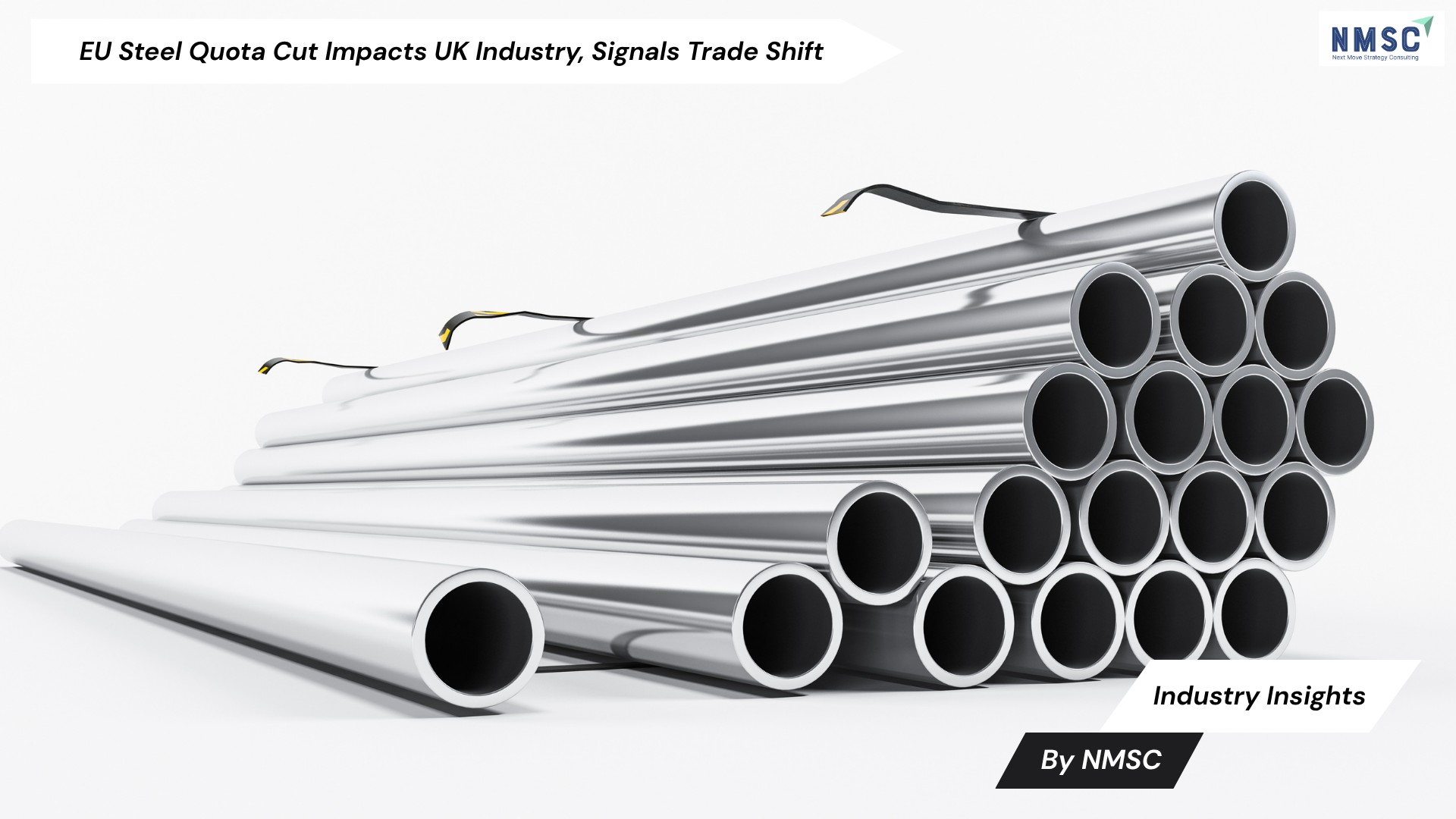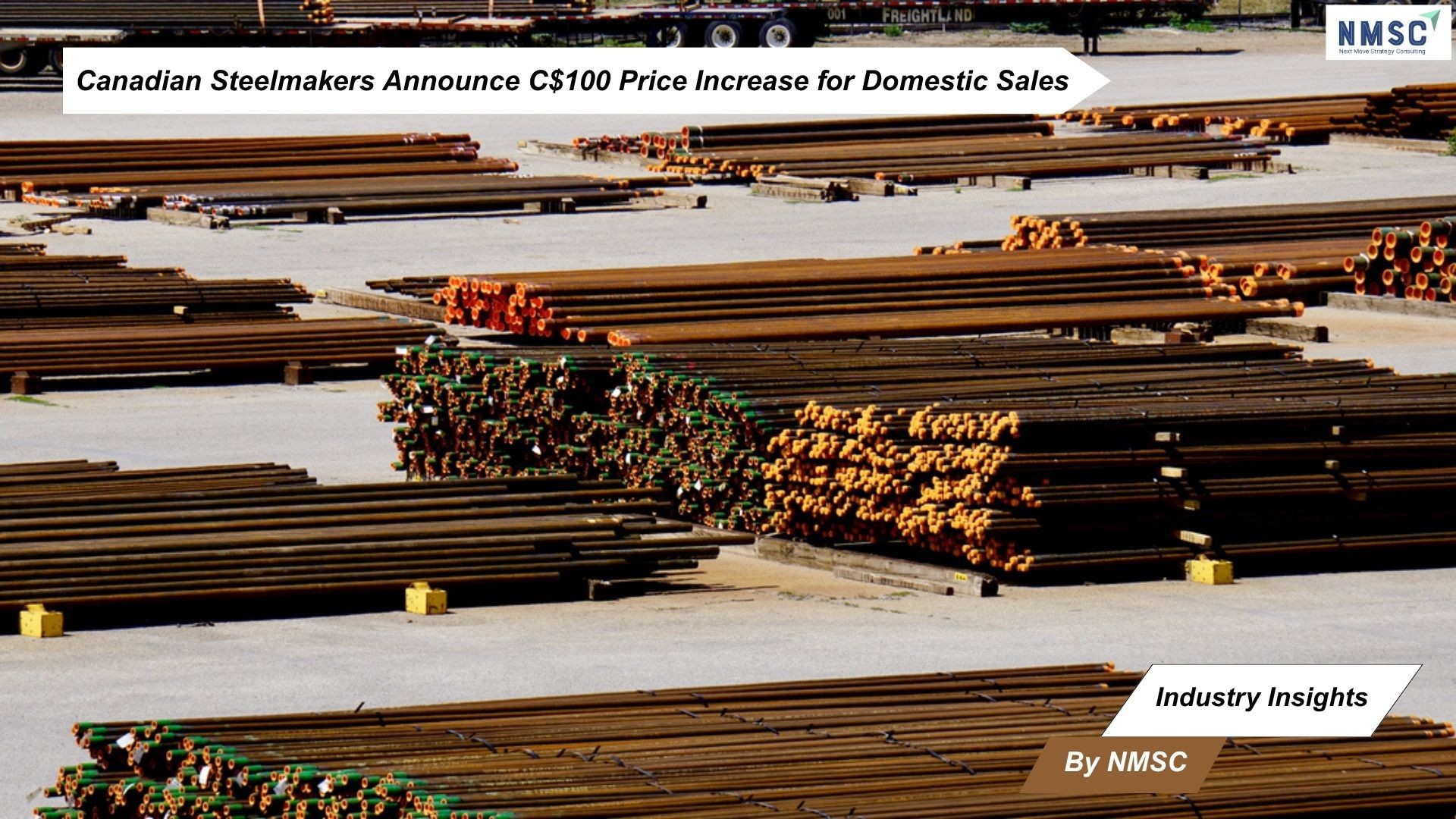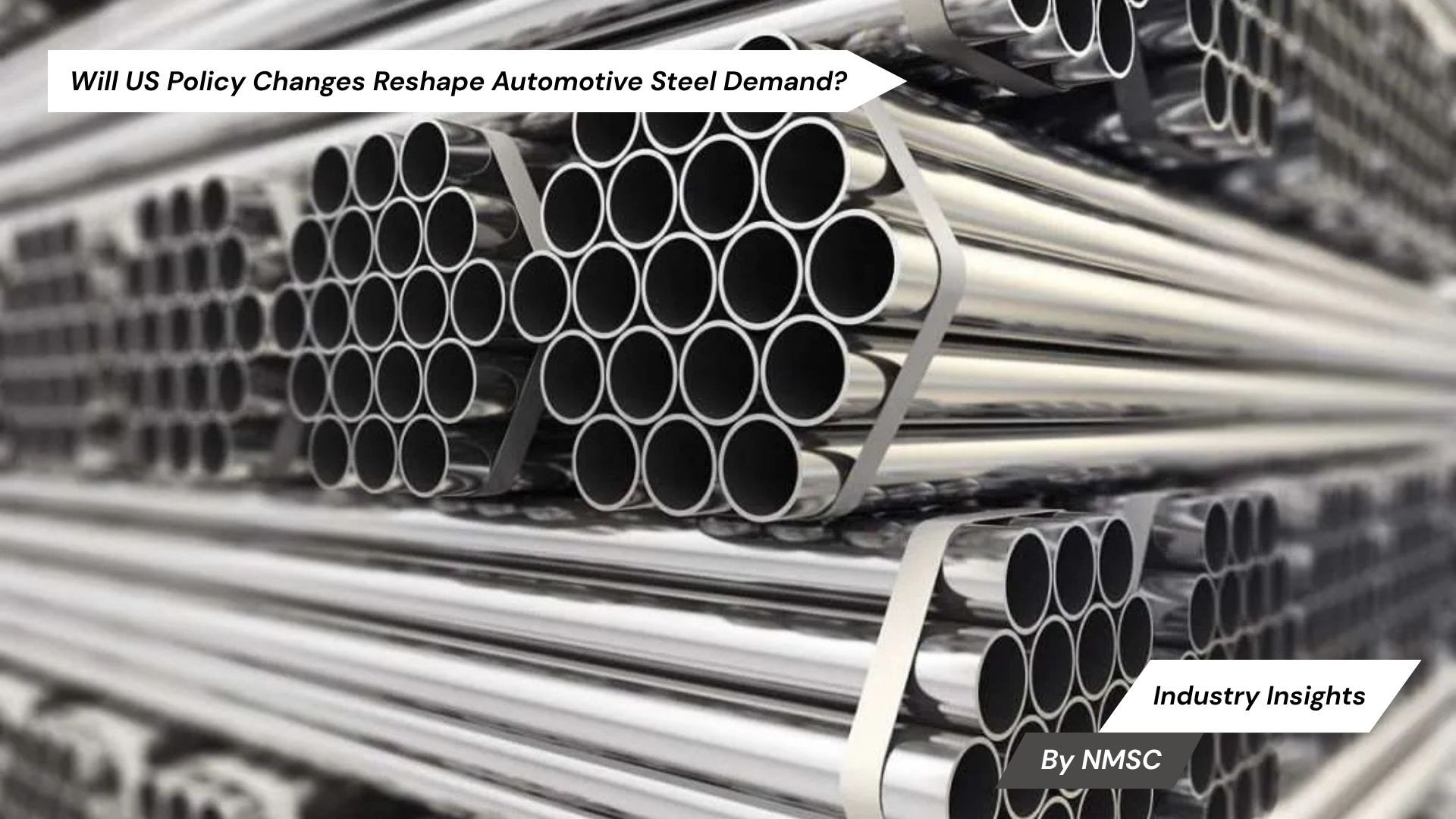EU Steel Quota Cut Impacts UK Industry, Signals Trade Shift
Published: 2025-10-08

Industry Insights from Next Move Strategy Consulting
The European Union’s recent move to cut steel import quotas by 47% represents a seismic shift in global trade dynamics, aimed at shielding its steel industry from a deluge of imports redirected by U.S. tariffs. This bold proposal introduces steep tariffs and stringent trade barriers, sending ripples of concern through the United Kingdom, where the steel sector faces a potential catastrophe.
Fortifying Europe’s Steel Sector
The EU’s safeguard strategy targets a global Steel overcapacity of 602 million tones-four times the bloc’s annual consumption-to protect its vital steel industry. By imposing tariffs of up to 50% on imports exceeding 18.3 million tonnes, the proposal affects countries like China, India, Turkiye, and the UK, while exempting Norway, Iceland, and Ukraine. Importers must now specify where steel is melted and poured, navigating a complex quota system that replaces the current World Trade Organization-aligned policy, set to expire in June 2026.
“A strong, decarbonized steel sector is critical for the EU’s competitiveness and economic security,” said European Commission President Ursula von der Leyen. Stéphane Sèjournè, Executive Vice-President for Prosperity and Industrial Strategy, added on X, “This safeguard clause is a step toward reindustrializing Europe and securing our industrial future.”
Key Features of the Proposal:
-
47% Cut in Tariff-Free Quotas: Restricts steel imports to bolster EU producers.
-
50% Tariffs on Excess Imports: Applies to steel exceeding the 18.3 million-tonne quota.
-
Origin Disclosure: Importers must declare the steel’s melting and pouring location.
-
WTO Compliance: Replaces the expiring safeguard policy with a new framework.
-
Exemptions: Norway, Iceland, and Ukraine are unaffected by the restrictions.
UK Steel Industry on the Brink
The UK, which sends over three-quarters of its steel exports to the EU, faces dire consequences. UK Steel Director-General Gareth Stace labeled the proposal “perhaps the biggest crisis” the British steel industry has ever encountered, warning that without UK-specific quotas, the sector could face “disaster.” The measures could redirect millions of tonnes of steel from tariff-hit countries to the UK, threatening the survival of its remaining steel companies.
Once a global leader, Britain’s steel industry now accounts for just 0.1% of its economy. The sector is already reeling, with thousands of jobs at risk at Tata Steel’s Port Talbot plant in Wales, where efforts to create a leaner, greener operation are underway. Alasdair McDiarmid of the Community trade union called the EU’s plan an “existential threat,” urging immediate UK-EU talks to avert its devastating impact.
Impact on the Global Steel Market: Next Move Strategy Consulting’s View
The EU’s proposal highlights escalating trade tensions in the steel industry. The 602 million tonnes of global overcapacity continues to depress prices and erode profitability worldwide. While the EU’s measures aim to protect its domestic market, they risk intensifying trade disputes with countries like China and India. For the UK, the influx of redirected steel could flood its market, further undermining competitiveness and accelerating job losses. This shift toward protectionist policies signals a broader trend of regionalized trade frameworks, with significant implications for global supply chain, pricing, and investments in sustainable steel production.
Industry Response and Strategic Outlook
The European Steel Association and trade unions like IndustriAll support the proposal, with General Secretary Judith Kirton-Darling noting that “steel is the backbone of Europe’s economy” but is at a “breaking point.” The proposal awaits approval from the European Parliament and Council, with potential WTO negotiations to assess its global impact. EU trade representative Maroš Šefčovič will address the tariffs at the G20 trade ministers’ meeting in South Africa.
For the UK, the stakes are critical. Without urgent diplomatic action, its steel sector risks collapse, with severe economic and social consequences. “A trade war would be catastrophic for workers across the UK and EU,” McDiarmid warned, advocating for collaborative solutions to address global overcapacity.
Redefining Steel Trade Dynamics
With 300,000 steelworkers across 20 EU nations, the bloc’s steel industry-rooted in the 1951 European Steel and Coal Community-remains foundational. The EU’s proposal signals a pivot toward protectionism, prioritizing regional resilience amid decarbonization and overcapacity challenges. For the UK and the global steel market, this marks a critical juncture, demanding swift action to navigate an increasingly turbulent trade landscape.
Source: Business Standard
Prepared by: Next Move Strategy Consulting
About the Author
 Nitrishna Sonowal is an SEO Executive and Content Writer with 3+ years of experience in digital marketing. She combines analytical insights with creative storytelling to deliver impactful digital solutions. Beyond work, she enjoys dancing, baking, and exploring new places.
Nitrishna Sonowal is an SEO Executive and Content Writer with 3+ years of experience in digital marketing. She combines analytical insights with creative storytelling to deliver impactful digital solutions. Beyond work, she enjoys dancing, baking, and exploring new places.
About the Reviewer
 Debashree Dey is a skilled Content Writer, PR Specialist, and Assistant Manager with expertise in digital marketing. She creates impactful, data-driven campaigns and audience-focused content to boost brand visibility. Passionate about creativity, she also draws inspiration from design and innovative projects.
Debashree Dey is a skilled Content Writer, PR Specialist, and Assistant Manager with expertise in digital marketing. She creates impactful, data-driven campaigns and audience-focused content to boost brand visibility. Passionate about creativity, she also draws inspiration from design and innovative projects.
















Add Comment